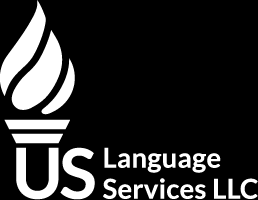What Documents Are Required For U.S. Citizenship?
Any person who is applying for U.S. citizenship will be required to include documents to the U.S. Citizenship and Immigration Services (USCIS). The documents required of each applicant will depend on their particular situation. For example, lawful permanent residents (also known as “Green card holders”) who are applying for citizenship through their marriage to a U.S. citizen, will have to include a copy of their marriage certificate. Applicants will be required to submit different documents, at different stages of their naturalization process. In this guide there will be two tables. The first table will outline which documents you are required to submit along with your N-400, Application for Naturalization. The second table will outline which documents you will be required to bring to your naturalization interview.
In this guide we will cover these questions:
- Should my documents be translated into English?
- Which documents should I submit with my application for naturalization?
- Which documents should I bring to my naturalization interview?
- Should legal documents be translated into English?
Should my documents be translated into English?
Yes, according to USCIS, if you submit a document with information in a foreign language, you must also submit an English translation.To guarantee that your naturalization application is processed quickly, it helps to have a certified translation.
Some documents that commonly need to be translated for immigration purposes include:
- Criminal records
- Birth certificates
- Military service records
- Marriage certificates
- Divorce decrees
- Academic transcripts
You can order a certified translation of these documents from our online store:
Order Your Certified Translation
Which documents should I submit with my application for naturalization?
The following table is a list of documents you should submit with N-400, Application for Naturalization.
| Type of Document | Examples of valid documents | Who is required to submit this document? |
| Proof of your status as a lawful permanent resident (green card holder). | Photocopy of both sides of your Permanent Resident Card (Green Card), It is also called Form I-551. | All Applicants. |
| Application fee payment. | You can pay using only one of these methods:
|
All Applicants must pay for their application unless they are exempt, or requesting a fee waiver. |
| Proof of your current marital status. | Include a copy of each of these documents, if the situation applies to you.
|
Any applicant who is married now, or who has ever been married in the past. |
| Proof of identity. | Two U.S. passport-style photos, 2×2 inches in size. (with your A-number written lightly in pencil on the back). | Applicants living outside the U.S. or applying from outside the U.S. |
| Certification of military service. | A completed, original (not copy) N-426, Request for Certification of Military or Naval Service. | Applicants applying for citizenship based on military service. |
| Fee reduction application. | Form I-942, officially called “Request for Reduced Fee.” | Applicants requesting a reduced application fee for the citizenship application (N-400). |
| Fee waiver application. | Form I-912, officially called “Request for Fee Waiver.” | Applicants requesting a waiver of the application fee and biometric services fee associated with the N-400. |
| Proof of medical disability. | Form N-648, officially called “Medical Certification for Disability Exceptions.” | Applicants seeking an exemption from the citizenship test due to a medical condition |
| Request to have an attorney or accredited representative present at your naturalization interview. | Form G-28: officially called “Notice of Entry of Appearance as Attorney or Accredited Representative” | Applicants who want an attorney or accredited representative to accompany them to their naturalization interview. |
Which documents should I bring to my naturalization interview?
The following table is a list of documents you should bring along with you to your naturalization interview.
| Type of Document | Examples of valid documents | Who is required to submit this document? |
| Appointment Letter/Notice stating the date, time, and location of your interview. | Form I-797C, officially called “Notice of Action.” | All applicants. |
| Proof of Permanent Resident Status (Green Card Holder Status). | Form I-551, Permanent Resident Card (Green Card). | All applicants. |
| State-issued identification. |
|
All applicants. |
| Travel Records. |
|
All applicants. |
| Proof of your current marital status, (and proof of termination of previous marriages if applicable.) | Include a copy of each of these documents, if the situation applies to you.
|
Any applicant who is married now, or who has ever been married in the past. |
| Proof of termination of your spouse’s previous marriages, if applicable. | Include a copy of each of these documents for your spouse, if these situations apply to them.
|
Any applicant who is now married. |
| Proof of official name changes, if applicable. |
|
Any applicant whose name has changed for any reason. |
| Evidence that your spouse has been a U.S. citizen for the last 3 years prior to you filing your Form N-400. |
|
Applicants filing for citizenship based on their marriage to a U.S. citizen. |
| Proof of your authentic marriage for the past 3 years, prior to filing Form N-400. | You can bring as many of the following documents as you want, to provide ample proof.
|
Applicants filing for citizenship based on their marriage to a U.S. citizen. |
| Proof of parental rights over your children. | Bring these for each individual child.
|
Applicants listing their children or dependents on N-400. |
| Proof that you have fulfilled financial support obligations, if applicable. | Bring these for each dependent that does not live with you.
|
Applicants listing their children or dependents on N-400. |
| Proof of payments to the Internal Revenue Service (IRS) for tax payments or overdue tax payments. |
If you owe outstanding federal, state, or local taxes.
|
All applicants. NOTE: If you are applying for citizenship based on marriage to a U.S. citizen, or if you have left the U.S. within the last 6 months, these tax documents are especially important. |
| Proof that you have maintained permanent residence in the United States. | As this documentation is more subjective in nature, it helps to bring as much evidence as possible.
|
Any applicant who has taken international trips lasting longer than 6 months (181 days), but less than 1 year (364 days). |
| Proof that you registered with the selective service. | If you registered with the selective service bring your Registration Acknowledgement Card. | Male applicants between ages 26 and 31 (if you did register for selective service). |
| Documentation of why you did not register with selective service. | If you did not register with the selective service you’ll need the following documents:
|
Mall applications between ages 26 and 31 who never registered for selective service. |
| Records of any encounters with law enforcement. | If you have ever been arrested or detained anywhere in the world, by any law enforcement officer, for any reason, and no charges were filed, you should bring:
If you have ever been arrested or detained anywhere in the world, by any law enforcement officer, for any reason, and charges were filed, you should bring:
If you have ever been convicted or placed in an alternative sentencing program (such as diversion) or rehabilitative program (such as a drug treatment or community service program), you should bring:
If you have ever had any arrest or conviction vacated, set aside, sealed, expunged, or otherwise removed from your record, you should bring:
If you’ve ever been in a traffic incident that involved alcohol or drugs, led to an arrest, or seriously injured another person, you should bring:
|
Any applicant that has been:
|
Should legal documents be translated into English?
If you look closely at the USCIS document checklist you’ll see that it says “if you have ever been arrested or detained by any law enforcement officer for any reason…”
This statement is intentionally non-specific because USCIS wants you to include legal documents no matter which country issued them. If you underwent legal proceedings of any kind, in any country, USCIS wants a record of the event. It’s important to note that USCIS wants these documents even if “no charges were filed” or you’ve had “any arrest or conviction vacated, set aside, sealed, expunged or otherwise removed from your record…”
Because of this requirement by the USCIS you may need to gather documents in foreign languages. If you need to include any legal documents in a foreign language, USCIS requires that they be translated into English.
To make sure these documents are translated correctly and accepted by the USCIS officer, it helps to have a certified translation.
Some examples of legal documents that might need to be translated into English include:
- Arrest records
- Police reports
- Court orders
- Dismissal orders
- Conviction records
- Acquittal orders
- Sentencing records
You can order a certified translation of these documents from our online store:
Order Your Certified Translation
U.S. Language Services is not a law firm; its content should not be taken as legal advice. For specific legal concerns, please consult a licensed attorney. Similarly, financial information on our site is for informational purposes only, not financial advice. Consult a certified financial advisor or tax professional for advice tailored to your situation.
By accessing U.S. Language Services, you acknowledge that it does not provide legal or financial advice. You agree not to rely on its content as such. U.S. Language Services and its contributors bear no liability for any inaccuracies, losses, or damages resulting from the use of information on our site.
Guaranteed Acceptance
All our certified to English translations are accepted by the USCIS. Our translations follow the guidelines established by the USCIS and are also accepted by educational institutions.
Most Requested Documents
FAQs
You can order most translations 24 hours a day, 7 days a week through our online store. For large projects (more than 20,000 words or 50 pages), please request a quote.




